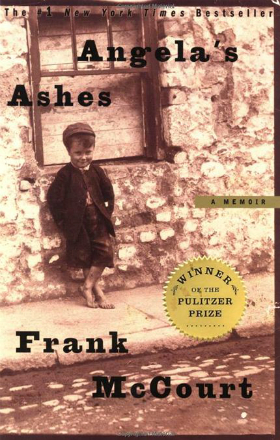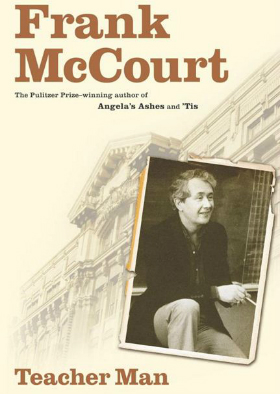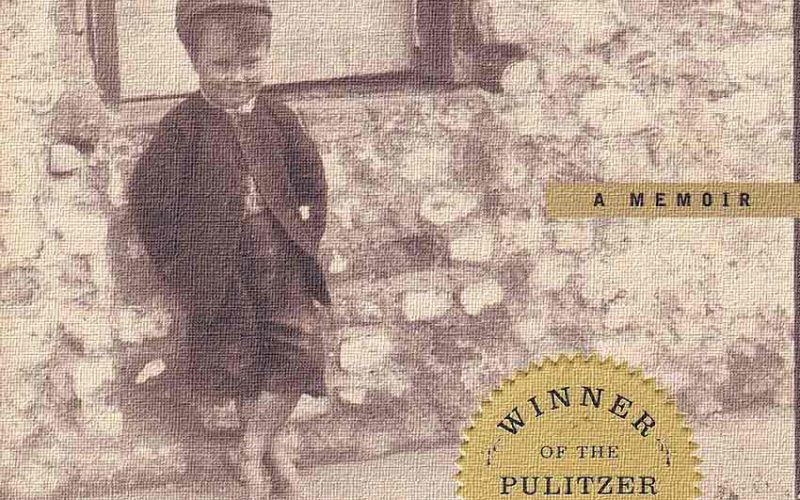I refused to settle for a one-act existence.
—Frank McCourt
I spent one summer in a derelict farmhouse in Co. Tipperary. My bed frame had collapsed, but the mattress was firm enough for the floor. I unrolled a sleeping bag on top.
At night, I listened to rain and wind and things that skittered across the roof and hoped they were leaves or loose shingles.
In the morning, I ate porridge left on the stove for days. On the weekend, my housemate and I heated water in the tea kettle and washed our hair on the stoop, one lathering while the other poured.
We had to walk six miles to buy groceries, so dinner was usually an omelet. Eggs could be had from the local post office and a nearby farmer brought us milk from his cows. I broke out in hives from the limited diet, so we borrowed a wobbly bike and took turns riding to town for supplies.
We were archaeologists “roughing it” to dig for knowledge. It was 1994 and I thought I’d caught a glimpse of Ireland’s romantic past.
Two years later Angela’s Ashes by Frank McCourt (1930-2009) won the Pulitzer Prize.

The book famously starts:
When I look back on my childhood I wonder how I survived at all. It was, of course, a miserable childhood: the happy childhood is hardly worth your while. Worse than the ordinary miserable childhood is the miserable Irish childhood, and worse yet is the miserable Irish Catholic childhood.
It obliterated my romantic ideas.
Frank McCourt was actually born in Brooklyn, along with his siblings Malachy, twins Oliver and Eugene, and baby Margaret. Malachy Sr. drank incessantly and squandered what little he made on alcohol. Little Margaret died at age two months.
“My father went on a lifelong tear,” Malachy Jr. later explained. The family returned to Ireland and settled in Limerick, Angela’s home town.
There, between the Great Depression and Malachy Sr.’s alcoholism, they sank into squalor.
The whole family slept in the same bug-ridden bed and shared a stinking privy with their neighbors. The twins died from privation. Within a few years, Angela gave birth to two more boys, Michael and Alphonsus.
Malachy Sr. headed for England’s factories when World War II started. That was pretty much the last anyone saw of him.
Angela soldiered on, begging from the curb to support the family. Frank left school at age 13 to help her, doing odd jobs and sometimes stealing.
He eventually found work delivering telegrams, which brought him to the attention of the local moneylender. She hired him to write and deliver threatening collection notices.
At age 19, with the wages he saved, Frank returned to Brooklyn.
He moved from one rooming-house to the other, worked as a janitor and bellhop at the Biltmore Hotel, and mailed money back to Limerick.
 McCourt the Teacher
McCourt the Teacher
Frank credits Chairman Mao with changing his aimless direction. He enlisted in the U.S. Army during the Korean War and spent two years in Germany training dogs (a job he said later prepared him for teaching high school). He returned to Brooklyn eligible for the GI bill.
His tuition would be paid, but he had only eight years of formal education. He talked his way into New York University by demonstrating the depth of his reading. Some find that amazing, but I’m not surprised that a bright boy, looking to escape his circumstances, found solace in books.
Frank graduated with a degree in Literature and a teaching credential. He taught English and creative writing in New York high schools for 27 years.
With his gentle brogue, his passion for literature, and his flair for showmanship, Frank became an inspirational teacher, akin to Robin Williams’ character in Dead Poet’s Society.
One story about his early days at the elite Stuyvesant School goes like this:
A privileged charge threw a tantrum and his sandwich at McCourt. Frank picked the sandwich off the floor and ate it with great relish. His students watched, shocked. He didn’t have much trouble with them afterward.
McCourt the Writer
Although Frank excelled at teaching, something else clamored inside him. “All along, I wanted to do this book badly. I would have to do it, or I would have died howling.”
He attempted a version of Angela’s Ashes in 1969 but threw it out.
I was imitating everybody. O’Casey and Joyce and Henry were in and Evelyn Waugh—imagine me writing like Evelyn Waugh. I tried to be smart-ass, upper-class British writer.
Frank finally discovered his voice in retirement—with the help of his granddaughter.
I had this extraordinary illumination…Children are almost deadly in their detachment from the world…They are absolutely pragmatic, and they tell the truth, and somehow that lodged in my subconscious when I started writing the book.
Told in present tense from a child’s viewpoint, Angela’s Ashes is at once devastating and full of compassion. McCourt admits he released a lifetime of anger to finish it. But in the end, the book is a testament to hope:
You might be poor, your shoes might be broken, but your mind is a palace. (Click to tweet this.)
 Angela’s Ashes came out in 1996 when Frank was 66. Ironically, the ’90s brought unprecedented prosperity to Ireland, and the poverty of the ’30s and ’40s was all but forgotten.
Angela’s Ashes came out in 1996 when Frank was 66. Ironically, the ’90s brought unprecedented prosperity to Ireland, and the poverty of the ’30s and ’40s was all but forgotten.
Irish dairy farmers benefited from membership in the European Community. They built big modern houses and let the old ones, like my temporary home, fall to ruin. The boom known as “The Celtic Tiger” began in earnest. It tanked in 2008 with the world financial crisis.Frank McCourt passed away in 2009, after publishing two more memoirs and a children’s book. His writing career lasted only half as long as his teaching career, but he didn’t go out howling.
He understood how those years teaching incubated his stories. He was fond of saying:
George Bernard Shaw said those that can do, and those that can’t teach. Just goes to show that Shaw didn’t know his arse from his elbow about teaching.
Sources
- Booknotes: Angela’s Ashes
- Irish Central: Frank McCourt, A Biography
- New York Times: Obituary
- The Daily Beast: Remembering the Full Frank McCourt
